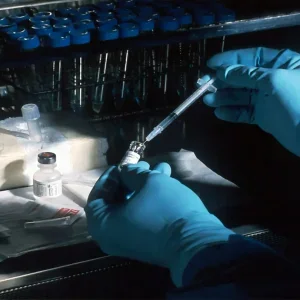
Merck, known as MSD outside the US and Canada, has reported promising top-line results from its Phase 3 trial (V503-064) of the 9-valent Human Papillomavirus (HPV) vaccine, Gardasil 9, in Japanese males aged 16 to 26 years.
The V503-064 study is a Phase 3, double-blind, placebo-controlled clinical trial assessing the safety, tolerability, and efficacy of Gardasil 9 (V503). It is being tested for preventing HPV-related anogenital persistent infections in Japanese males aged 16 to 26.
In Japan, Gardasil 9 is marketed as SILGARD 9.
The primary efficacy objective was to show a reduction in HPV 6/11/16/18-related anogenital persistent infections over six months.
The secondary goal was to demonstrate a reduction in HPV 31/33/45/52/58-related infections over the same period. The study included 1,059 participants.
According to the results, the trial achieved both its primary and secondary endpoints.
The findings also showed that a three-dose regimen of Gardasil 9 significantly reduced the incidence of persistent anogenital infections caused by the nine types of HPV compared to a placebo.
Merck Research Laboratories chief medical officer and global clinical development head and senior vice president Eliav Barr said: “A decade after the first approval of Gardasil 9, Merck continues to evaluate this important vaccine in additional patient populations and remains committed to helping prevent certain HPV-related cancers through broad and equitable access globally.
“These data build on the clinical efficacy of Gardasil 9 for the prevention of persistent infection in males and can potentially make a significant impact in addressing the global burden of certain HPV-related cancers and diseases.”
Merck will present these findings to regulatory authorities in Japan and worldwide to seek approval for Gardasil 9’s use in males. Full results will be shared at an upcoming scientific congress.
Additionally, Merck’s clinical development programme includes an ongoing Phase 3 trial (NCT04199689) that tests Gardasil 9’s efficacy in preventing HPV-related oral infections and cancers of the head and neck.
In March, Merck announced its plans to develop a new investigational multi-valent HPV vaccine for broader protection against various HPV types.
The company also plans to start clinical trials to compare the efficacy and safety of a single-dose regimen of GARDASIL 9 with the currently approved three-dose regimen, in both females and males.






